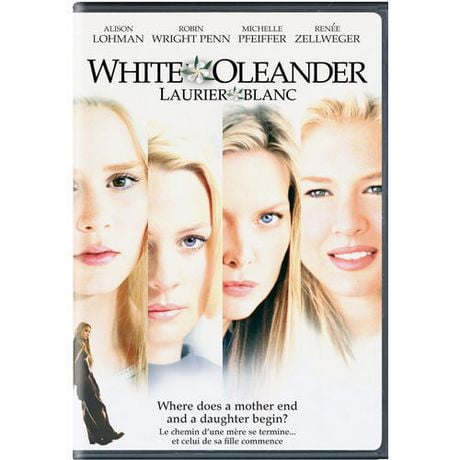


His debut solo novel, The Crimson Corset, was an Amazon bestseller. First published in 2012, he has since co-authored The Cliffhouse Haunting and Mother with Tamara Thorne and is working on several other projects. Janet Fitch pulls no punches in White Oleander, delivering complex characters who range from tender and sweet to twisted and dark, and everything in betweenĪlistair Cross grew up on horror novels and scary movies, and by the age of eight, began writing his own stories. As she navigates the foster system and tries to break away from her toxic mother, Astrid evolves in real ways - sometimes for better, sometimes for worse, but she’s very much a real person. While I doubt I’ll ever write anything similar to it, White Oleander brings pretty words into my head - and that’s always a good thing for a writerĪdditional thoughts: To my interpretation, White Oleander is a story about mother-daughter relationships, self-discovery, and coming up the hard way.

How it inspired me: Not only is White Oleander just plain beautifully written, but Janet Fitch is a hell of a storyteller. What it taught me: Reading White Oleander, I learned a lot about the foster system and gained unique psychological insights into Janet Fitch’s (very well-drawn) characters Other media: The 2002 film, White Oleander, starring starring Michelle Pfeiffer and Renée Zellweger Standout achievements: While White Oleander is pretty much a standout achievement in its entirety, I think one of Janet Fitch’s greatest powers is the ability to make the reader truly experience the loss, loneliness, and abandonment that her characters feelįun Facts: White Oleander was originally written as a short story which appeared in the 1994 edition of “World’s Best Short Stories” Even if I hadn’t been interested in the story itself, I suspect the prose would have kept me bobbing right along whether I liked it or not. Greatest strengths: White Oleander is full of beautiful, poetic writing that makes me wonder if all of Janet Fitch’s work reads as fluidly. I can’t really say much beyond that because people get so upset about spoilers (although, I’m not sure if this part counts as a spoiler, exactly - I’m sure you can probably guess what happened - but it’s probably best not to take chances.) Either way, just read White Oleander and find out. Most memorable scene: What Ingrid does to her boyfriend, Barry.

Notable characters: Astrid Magnussen, a foster child trying to find herself as she makes her way through several foster homes Ingrid, Astrid’s mother - a brilliant poet who’s been imprisoned for murder My favorite quote: “The phoenix must burn to emerge.”


 0 kommentar(er)
0 kommentar(er)
